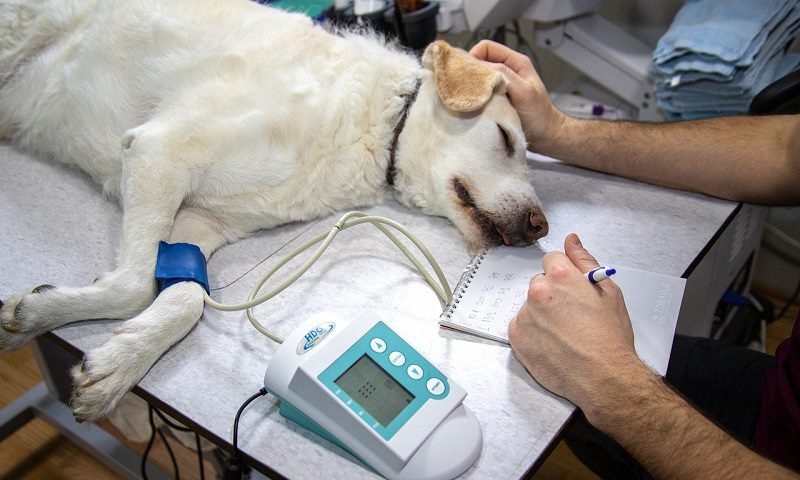Pet’s Corner Q&A
My dog Benno is having his eye removed at the vets next week because of a tumour. I’m so nervous for him. What should I expect?
It can be a shock to hear that your dog needs an eye removing, but the decision will not have been taken lightly.
Bruno will have to have a full general anaesthetic for the operation.
He may be home the same day, but if the vet team feels it’s in his best interests, they may keep him in overnight until they are happy with him.
When Benno comes home, he will be wearing a cone collar and the area where his eye has been removed may be a little swollen and bruised.

He might also have a bald patch around the eye where his fur has been clipped for surgery and he will have stitches.
Your vet will give you instructions to follow to help his recovery and they will provide pain relief medication.
It’s vital that you prevent Benno from scratching or rubbing his wound.
As the wound can become itchy when healing, you will need to keep the cone collar on throughout recovery.
If you have any other pets, you’ll need to prevent them from licking the wound too.
He will need lots of rest and TLC during his recovery!
Find out more about owning a one-eyed dog here: pdsa.org.uk/eye-removal-in-dogs
Is it true that garlic is poisonous to cats?
Yes. Garlic is part of a group of plants called alliums, alongside onions, shallots, leeks, and chives, which are all toxic for cats and dogs.
If your cat gets their paws on any of these, they may experience vomiting and diarrhoea or you might notice they have a reduced appetite.

Alliums are also thought to contain certain toxins that damage red blood cells which causes anaemia (a low number of red blood cells in the body).
Symptoms of this can take a bit longer to appear but can include trouble breathing, lethargy and pale gums.
It’s best to treat allium poisoning straight away, so contact your vet if you see your cat eating onions, garlic or leeks or if you are concerned they are showing these symptoms.
Can cats get asthma? My Siamese cat LuLu is a noisy breather and sometimes wheezes.
Just like humans, cats can suffer from asthma.
Vets aren’t exactly sure what causes it, but it’s thought to be because of an allergy to particles in the air such as dust, smoke and air-fresheners.
It is actually more common in Siamese and Burmese cats.

Fortunately, most asthmatic cats respond well to medication. Help Lulu by keeping the house well ventilated.
Avoid using very highly fragranced scented candles, air fresheners or sprays and remember that smoking can also aggravate her condition.
There are other illnesses that can cause noisy breathing and wheezing though so I’d recommend taking LuLu to the vets to get her checked over.
Find out more here: pdsa.org.uk/cat-asthma-advice
Picture: Pixabay/jarmoluk
